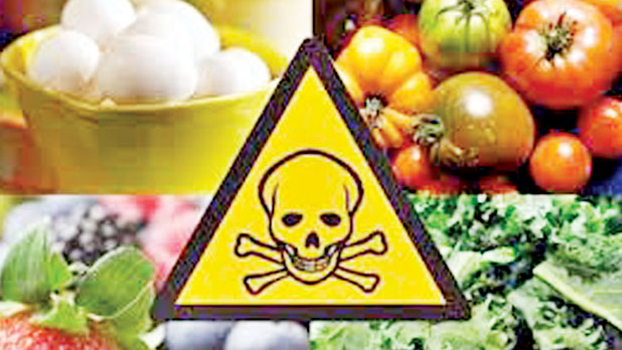Stringent penalties for tainted food proposed

The government is going hard on selling and producing of adulterated and expired food items in order to ensure safe food for all.
Amendments in the existing food act proposes fines up to 12 lakh taka and five years of imprisonment for violating clauses or rules in the law.
At the same time, strict restrictions are being imposed on the sale of adulterated, counterfeit and expired food. On such latest moves by the government food product traders would come under strict obligations to follow rules.
In this regard, the Safe Food Regulations have been formulated in strict implementation of the Safe Food Act enacted in 2013.
These regulations detail the work that traders will be required to do in the field of food management. Violation of these restrictions will result in revocation of the license of the concerned trader and multiple punishments including jail and fine.
Chairman of Bangladesh Safe Food Authority Mohammad Abdul Qayyum Sarkar said, "The restrictions in the 2013 food law were not very clearly defined and as such many traders had taken advantage of such vague clauses in the law repeatedly violating the clauses. In the amended law regulations have been framed to fill these gaps."
The rules state that food traders must reveal detailed information-proofs about the chemicals used in their products. They also need to show evidence of food production raw materials. Traders will be obliged to inform the authorities to bring changes in food processing management. Staff also need to be trained for safe food production and management. Failure to comply with the provisions of the regulations will result in penalties for food traders.
To ensure safe food, the government in 2013 reformed the country's existing laws and enacted new laws with strict restrictions. The law provides for a maximum penalty of five years imprisonment, including a revocation of the license, a fine of up to 12 lakh taka, a combination of two convictions and a case.
Due to the shortness of the law, various limitations remain. In addition to legislation, mobile courts are run by multiple government agencies. Someone is being punished in these courts every day. Even after this, 100 percent safe food was not ensured.
To ensure safe food, food traders must use approved chemicals in food preparation or processing, the regulations said. In order to identify the presence or excess of chemical, heavy metals, radioactive substances, pigments, perfumes or harmful microorganisms etc.
In the cases of food produced or imported, the report should be stored by analyzing the food samples in any recognized laboratory. Traders will update the evidence and documents related to the conduct of food business and submit as per the demand of the authorities.
The regulations further state that the food traders must ensure that the officers or employees engaged in the food business are trained and work in accordance with the laws and regulations and instructions. The food trader has to arrange for the necessary training of his officers or employees. At the same time updated information of the training should be saved.
Safe food chairman in this regard said, "Earlier traders had excuses that it was not clear how they would ensure safe food products. Now they can't say that anymore. These regulations cover all stages of food production, processing, preparation, packaging, transportation, warehousing, distribution, display and marketing, including import and sales activities.
Now it will not be difficult to know and understand them. If anyone knowingly violates the law, action will be taken against them according to the law."




